But let’s get back to what this post is really about, dining out. Going out to eat doesn’t have to be unhealthy. There are actually many choices you can make to improve the quality of your meal. Here are some tips for dining out while maintaining a healthy lifestyle:
Dining Out Survival Guide
Plan ahead.
Visit the restaurant’s website for the menu so you know what to expect when you get there. Even try and decide what you’ll order ahead of time. This may help avoid making any impulsive decisions upon ordering.
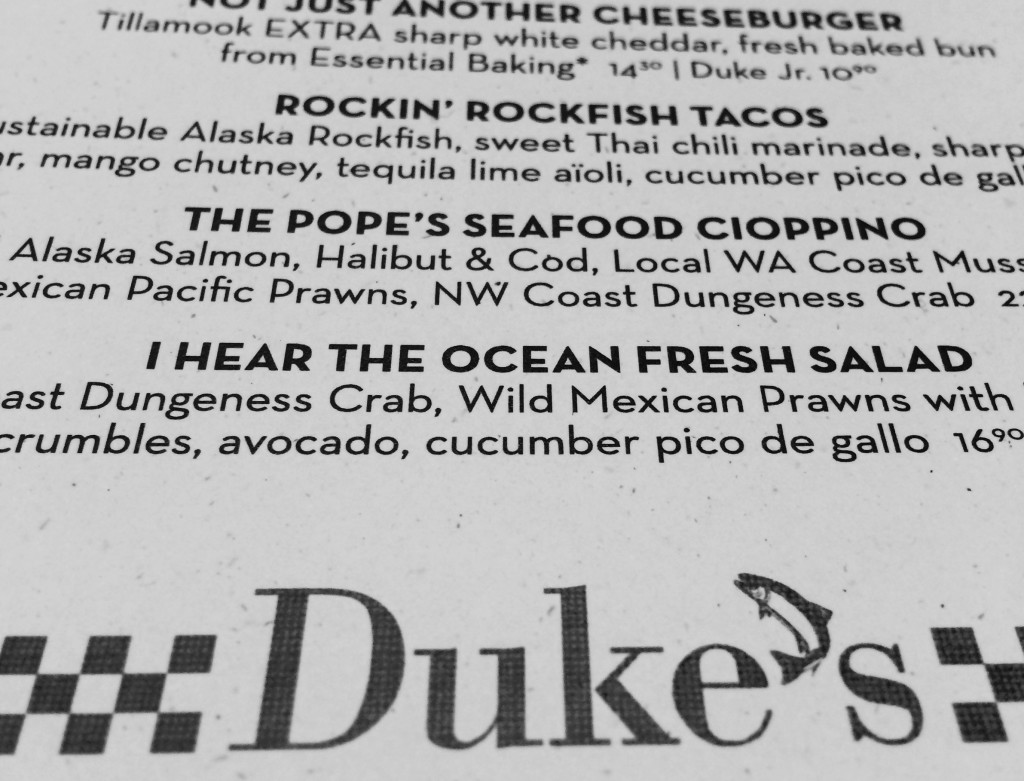
Don’t be overly hungry.
Just like we shouldn’t go to the grocery store hungry because we tend to make poor choices, the same goes for being overly hungry when dining out. When we’re too hungry, it may seem more appetizing to order the deep fried unhealthy option, rather than choosing something that will be satisfying, yet healthy.
Practice portion control.
Most restaurants serve dishes on oversized plates, which can lead to overeating. Be mindful of your portions and stop eating when you start to feel full. You’ll thank yourself later for not overeating.
Share an entrée with friend or spouse.
Because restaurant portions are often very large, sharing an entrée with a friend can both decrease your consumption of calories, and also save you some money. Remember, sharing is caring.
Ask for a to-go box with your meal.
Leftovers can make great lunches the next day. If you ask for a to-go box with your meal, you can easily box up half of your entrée even before eating to decrease the risk of overeating.
Ask for extra vegetables.
Most restaurants are more than happy to give you extra vegetables; you just have to ask. Not only will this increase the nutrient quality of your meal, but the fiber in veggies can leave you feeling satisfied sooner.

Eat mindfully + savor the experience.
Eating out can be an enjoyable experience for many reasons. Savor your food and enjoy a night off from cooking and doing the dishes. And just relax. Food is digested and absorbed more efficiently when the body is not in a stressed state. Chew your food well and savor each bite. This will help you to relax and eat more mindfully.
Eat slowly to allow for fullness to kick in.
Eating slowly and savoring your food can decrease the chances of overeating and allows the body to feel your natural fullness cue [i.e. the point at which your body feels satisfied and you decide to stop eating]. When we eat too quickly it is harder for our body to recognize being full in the first place, which leads to overeating.
Place a napkin on your plate the when the first indication of fullness occurs.
This simple gesture can let your server know you are done with your food and can also decrease the risk of overeating when you are already satisfied.
Avoid high sugar/high calorie beverages.
Instead of consuming high calorie beverages [soda, juice, milkshakes, etc.] that do us more harm than good, opt for healthy options such as water, water with lemon slices and unsweetened iced or hot teas.
Choose broth based soup or salad as a side dish instead of fries or bread.
These lower calorie + higher nutrient options make great swaps when eating out. Choose broth based soups as opposed to the higher calorie creamy soups or choose a salad with vinaigrette salad dressing on the side. Skip the fried potatoes and refined white breads.
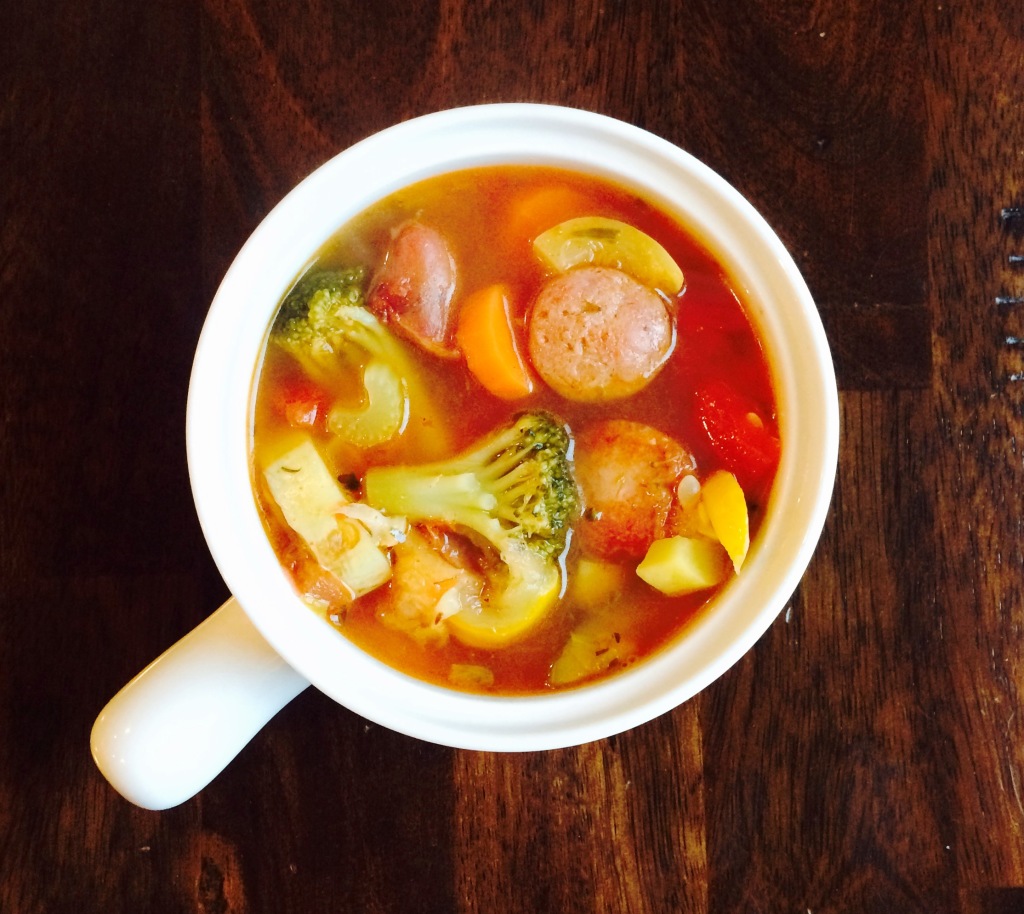
Ask for salad dressing or other condiments on the side.
Salad dressing or condiments (ketchup, tartar sauce, BBQ sauce, mayo, etc.) can contain excess calories, sugar and unhealthy fats. Instead of having to skip the dressing or condiments all together, just ask for them on the side so you can use a smaller amount.
Choose oil and vinegar based salad dressings or salsa.
Creamy salad dressings at restaurants tend to contain unhealthy fats and other processed ingredients. These dressings can negate most of the benefits of ordering a salad in the first place, and can add hundreds of unwanted calories. Opt for a vinaigrette or salsa on the side so you can dress your own salad.
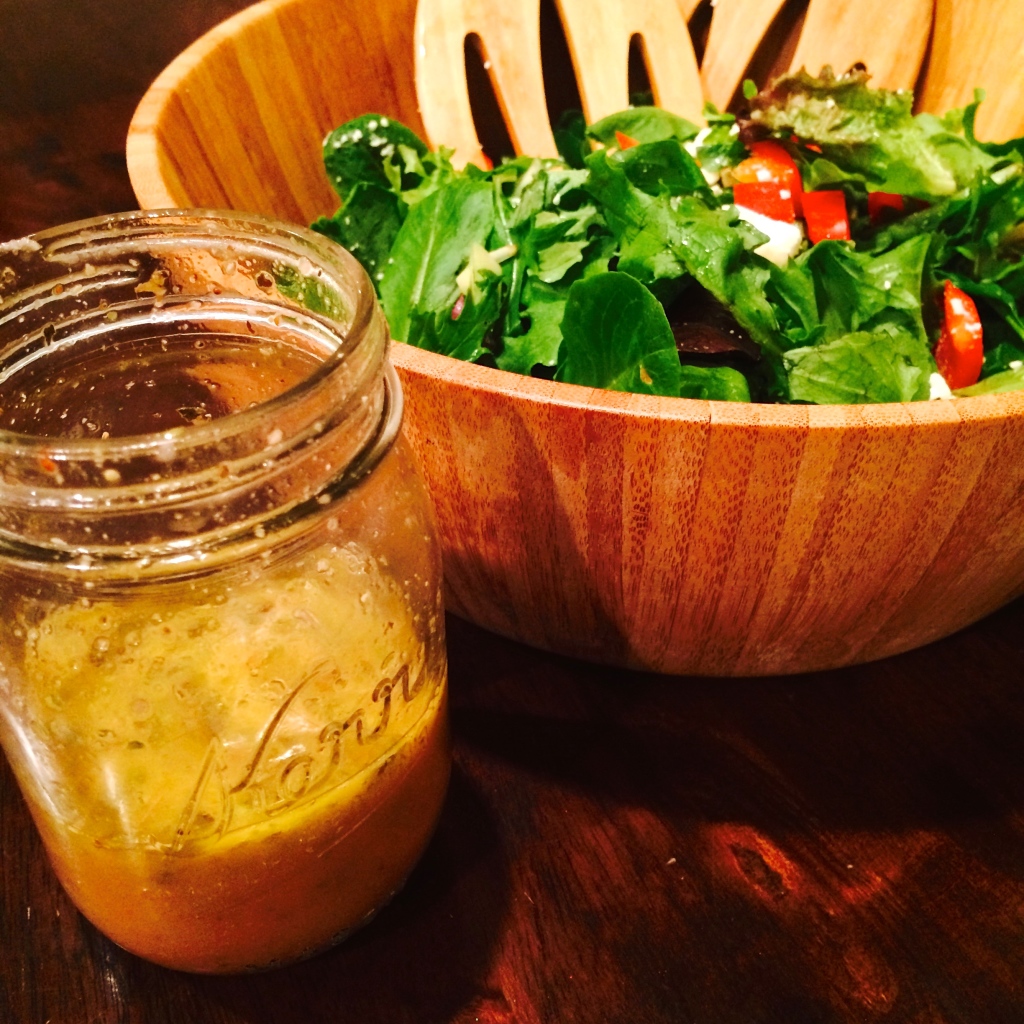
Choose whole grains or gluten-free options.
Ditch the refined grains such as white bread, white rice and pasta. Instead, choose a whole wheat bun, brown or wild rice, whole wheat pasta or gluten-free pizza crust. Or better yet, ask for a lettuce wrap instead of a bun.
Special ordering is okay and often a healthy decision.
Don’t be afraid to ask your server for something specific. More times than not, your server will be able to accommodate your requests. You just have to ask.
Pass on the dessert menu.
Restaurant desserts often contain more calories than an entrée, and can contain over a days worth of your recommended sugar intake. It’s best to avoid the dessert menu and the temptation all together.
MENU WORDS TO BE FAMILIAR WITH
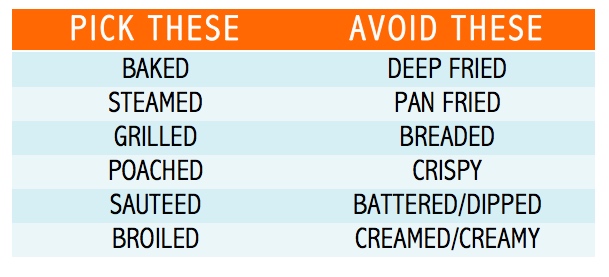
Did you find these tips to be helpful? Which ones do you follow most? Let me know in the comments below. Or share this post with a friend 🙂

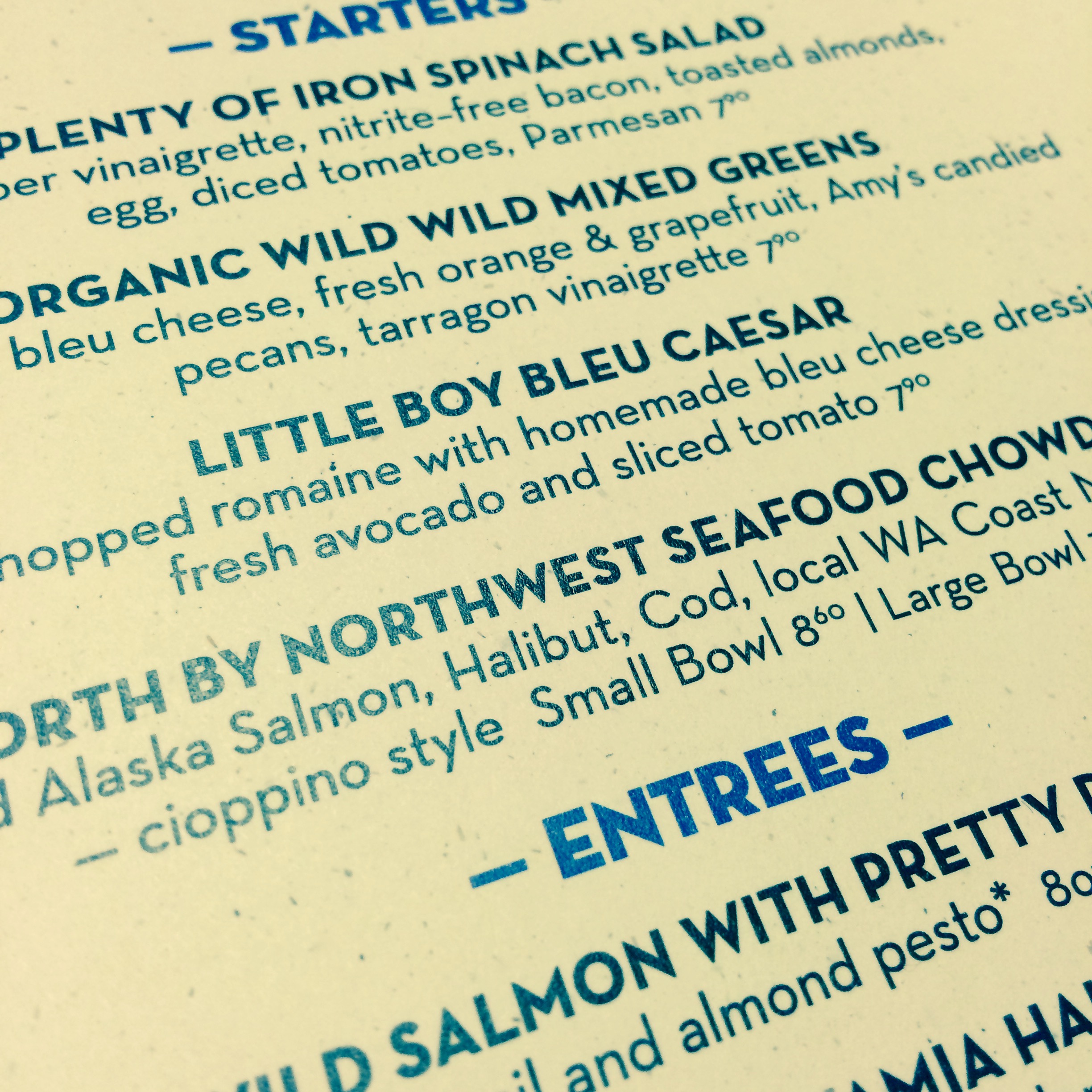



Recent Comments